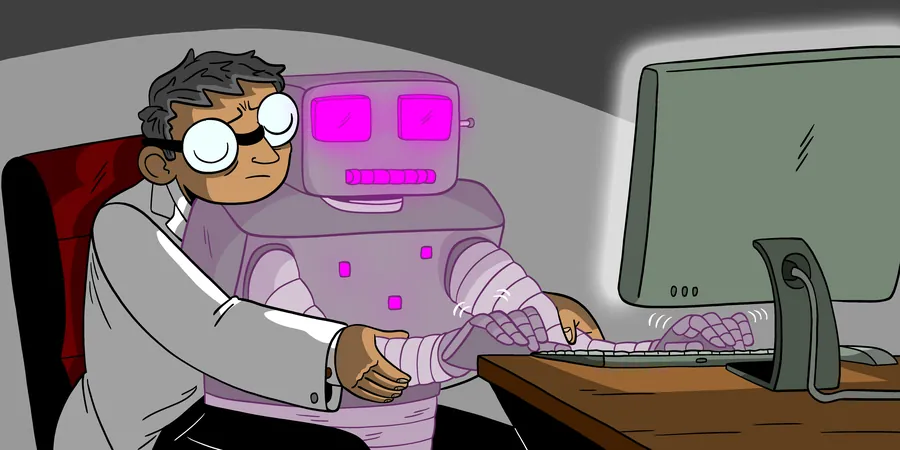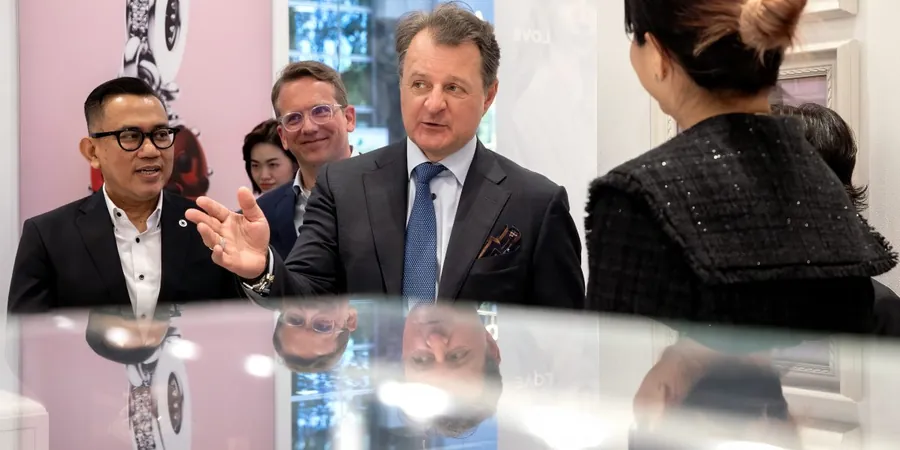
From Academia to AI: My Journey Through the Digital Recruitment Labyrinth
2025-04-16
Author: Ming
In a world where avatars interview candidates, I experienced a curious transition from academia to the tech realm. My latest interview unfolded with a digital avatar, which expertly navigated topics ranging from my PhD thesis to intriguing new research developments. Surprisingly, engaging with a virtual entity felt eerily similar to past interviews with human recruiters. Could this be the new normal in job-hunting?
As I reflected on the interview, I encountered questions that shifted gears—like defining the essence of a good multiple-choice question. I was reminded of Georges Perec, who eloquently noted that jigsaw puzzles are not solitary endeavors: every piece is pre-designed by the puzzlemaker. Unfortunately, I left out the literary reference, opting for a more straightforward response.
My answer hinted at the complexities of generating plausible misdirections in exams—a contemplation that spiraled into thoughts about the underlying system at play, the unseen human behind the avatar, and the very nature of the job I was auditioning for. After what felt like digital eternity, the avatar thanked me, leaving me uncertain whether to reciprocate. The mere fact that this encounter could be happening to countless others felt surreal.
Soon after, I received a job offer from xAI, a contract position set to start immediately. My academic journey had stretched over a decade, filled with postdoctoral roles that led to a cycle of nearly there but never quite landing a faculty job—until I made the pivotal decision to shift gears.
The Shift from Academia to Tech
I embarked on an adjacent role in machine learning with a colleague aiming to leverage my academic prowess while I transitioned into tech. I faced the daunting challenge of mastering a programmatic language take—packaging my code for others to efficiently use it.
Unlike academia's slow, meticulous pace, the tech environment thrived on speed and iteration, encapsulated in the mantra of 'move fast, break things.' Though this rattled my academic sensibilities, I embraced the challenge of merging my research skills with the demands of a fast-tracked tech life.
The Digital Work Experience
In my role at xAI, translating textbook problems into structured formats meant dancing on the edge of surveillance capitalism. Each keystroke monitored by programs ensuring productivity—a curious juxtaposition to my previous unmonitored academic freedom. Meanwhile, the primary goal entailed providing quality data to refine AI training models.
Yet, the work became monotonous. I opted out, but soon found myself in a fresh opportunity through a Mercor liaison—this time, being recruited once again by a robotic avatar. Cupcakes of code tests and behavioral queries awaited.
Every Get-The-Job Cycle Comes with Pitfalls
With a demanding schedule of commitments, I struggled to complete the tasks assigned in this new venture, grappling with the need to balance my time wisely. The looming fear of tech companies where AI might soon eclipse human capability nagged at me, forcing a contemplation of where I fit into the future of work.
My performance at my academic job began to dwindle amidst this whirlwind, yet my new part-time role flourished as I adapted to coding practices, increasingly relying on AI-powered coding assistants. They proved both helpful and a distraction, illustrating how technologies leveraged efficiency but might overshadow human creativity.
Navigating this evolving landscape amidst uncertainty raised an important question: Are we mentally and professionally ready to embrace a future where AI dominates roles traditionally filled by humans? The implications are vast, and while we ponder the ethical trajectory of these technologies, the unsettling truth remains stark: AI could soon outperform human efforts across numerous sectors.
As I mentally prepare to one day perhaps share Perec's insights with a machine capable of grasping their nuance, I'm left grappling with the essence of meaningful work in a world shifting under our feet. The future may not be as human as we expect, and it might be closer than we think.


 Brasil (PT)
Brasil (PT)
 Canada (EN)
Canada (EN)
 Chile (ES)
Chile (ES)
 Česko (CS)
Česko (CS)
 대한민국 (KO)
대한민국 (KO)
 España (ES)
España (ES)
 France (FR)
France (FR)
 Hong Kong (EN)
Hong Kong (EN)
 Italia (IT)
Italia (IT)
 日本 (JA)
日本 (JA)
 Magyarország (HU)
Magyarország (HU)
 Norge (NO)
Norge (NO)
 Polska (PL)
Polska (PL)
 Schweiz (DE)
Schweiz (DE)
 Singapore (EN)
Singapore (EN)
 Sverige (SV)
Sverige (SV)
 Suomi (FI)
Suomi (FI)
 Türkiye (TR)
Türkiye (TR)
 الإمارات العربية المتحدة (AR)
الإمارات العربية المتحدة (AR)